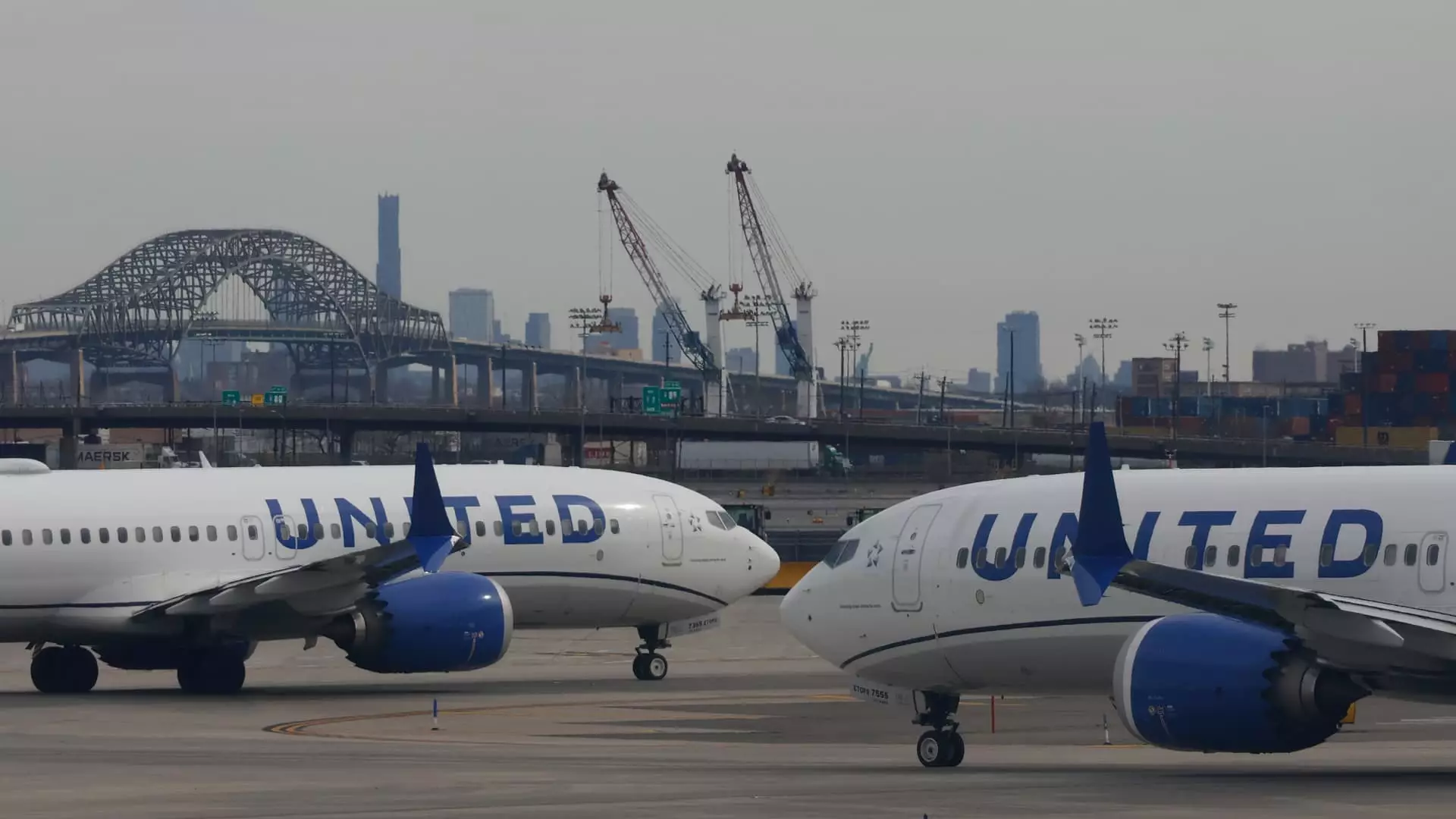United Airlines is grappling with a troubling scenario, marking a troubling turn for both the airline and its passengers. The decision to cut 35 flights daily from Newark Liberty International Airport is not just about numbers; it’s about the cascading effect that such reductions have on travelers’ lives. CEO Scott Kirby candidly cited air traffic controller staffing shortages and technology failures as primary culprits of the recent operational chaos. This situation is dire, as it doesn’t just reflect inefficiency but also reveals a more profound systemic failure within the Federal Aviation Administration (FAA) that warrants urgent scrutiny.
The Human Cost of Delays
For the average traveler, a delayed flight can turn a simple journey into a torturous ordeal. As more than 300 flights staggered in delays, passengers found themselves stranded, frustrated, and helpless. Hours-long waits are increasingly becoming the norm at Newark, a hub already notorious for congestion. Such conditions breed resentment, not only against the airlines that fail to deliver but also against a regulatory body that seems ill-prepared to manage air traffic as the demands of travel increase. It raises questions about reliability and customer service that no amount of compensation can address. While United has pledged to waive change fees for those affected, these gestures feel more like Band-Aids on deep wounds rather than solving the underlying issues.
Systemic Failures in Aviation Management
The FAA’s ongoing staffing challenges are not new; they have compounded over time, exacerbated by the pandemic’s impact on training programs. The Transportation Department’s recent incentives to encourage new air traffic controllers could be seen as reactive rather than proactive measures. Investing in the workforce should have been a priority long before the present crisis unfolded. The pattern of reactive policies suggests a lag in foresight that endangers both the operational integrity of our air travel and passenger safety.
United’s Accountability
While Kirby rightfully addresses external factors like staffing shortages and technology failures, United Airlines must also shoulder some of the blame. The decision to cut flights, while intended to protect customer interests, ultimately reflects a lack of contingency planning. The airline cannot rely solely on external factors when the stakes are so high. Passengers deserve to see more robust crisis management strategies and a commitment to operational excellence, which appears to be missing at this time.
The Road Ahead
As frustrating as it is to watch the aviation landscape deteriorate, there is an opportunity for both United Airlines and the FAA to rethink their strategies. This situation presents a wake-up call that must be heeded; a complete overhaul of air traffic management could pave the way for future stability. Airports are vital to the economic well-being of the regions they serve, and how they manage crises reflects not just on their operational capacity but on their commitment to the traveling public. As we venture deeper into this globalized world, both airlines and regulators must step up to restore the faith that has been severely shaken.

